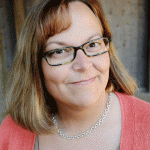Gore Matienzo – Question 4
By
Emily Gore, Mark A. Matienzo
November 2015
4How is an archive’s radicality or radical potential affected by relationships with users, collaborators, communities, and/or other institutions, in your experience?
Emily Gore
Director of Content – Digital Public Library of America (DPLA)
Mark A. Matienzo
Director of Technology – Digital Public Library of America (DPLA)
Emily
¶ 1 Leave a comment on paragraph 1 0 In our experience at DPLA, we have partners who are themselves radical archives; partners who themselves embrace radical concepts, but are at institutions that do not welcome those concepts; and partners who are much more appreciative of mainstream customs and caution. We also have partners who fall into all places in between on the spectrum of risk-taking. In our experience, this offers us an opportunity to pilot activities with those who are more radical or whose institutions have a higher risk tolerance. Piloting allows us, along with our partners, to make mistakes and learn from them. Once we “work the kinks out” in a piloting phase, others have an opportunity to see how a process that may have once been deemed risky or radical actually benefits their organization.
¶ 2 Leave a comment on paragraph 2 0
Mark
¶ 3 Leave a comment on paragraph 3 0 The radical potential of an archive to others largely depends on how those relationships are cultivated. In most cases, actual or perceived “radicality” needs to be understood through a process of negotiation, as it is not always obvious to everyone. The possibilities for an archive’s radicality may be shaped by tension or conflict, through which new aspects of radicality may emerge. In my experience, this demonstrates that the radicality of archives is rarely static.



0 Comments on the whole post
Leave a comment on the whole post
0 Comments on paragraph 1
Leave a comment on paragraph 1
0 Comments on paragraph 2
Leave a comment on paragraph 2
0 Comments on paragraph 3
Leave a comment on paragraph 3